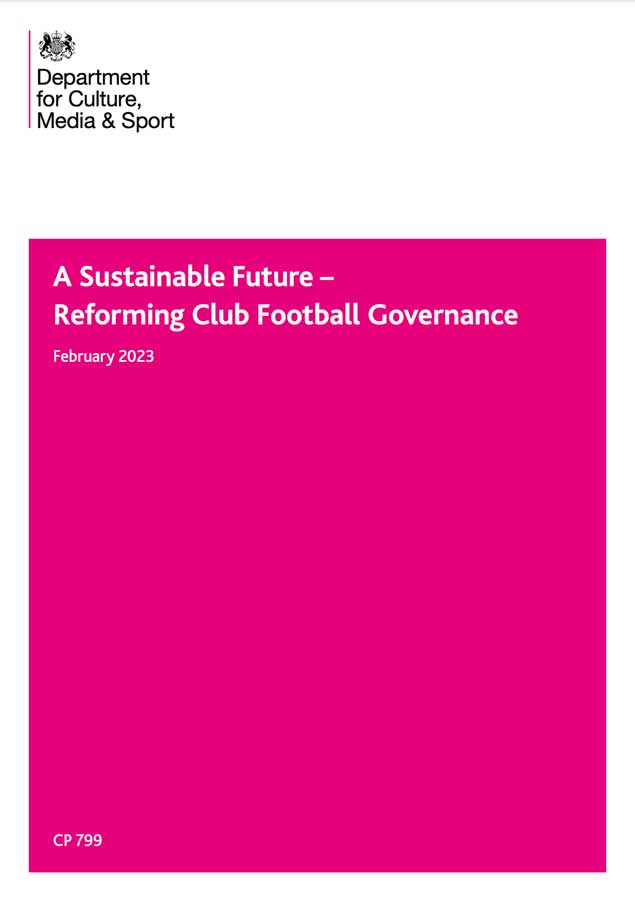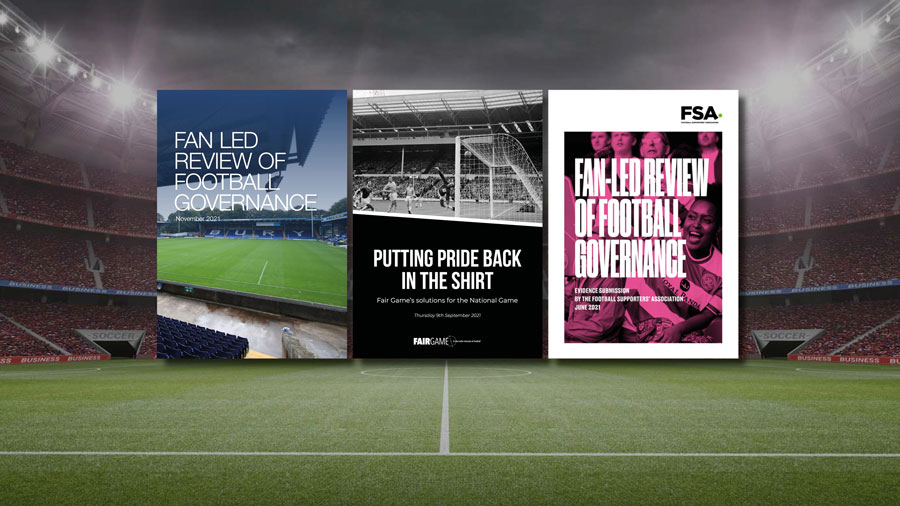The people’s game?
Football clubs are nothing without their fans, so why do so many teams prioritise profit over passion?

GOVERNANCE

Martin Cloake
Former Chair at Tottenham Hotspur Supporters’ Trust

Martin Cloake
Former Chair at Tottenham Hotspur Supporters’ Trust
Issue 67 | September 2023
Last month in a market town on the River Irwell in Lancashire, football came home. Bury FC played its first competitive game at Gigg Lane for four years. The club was kicked out of the Football League after mismanagement by the previous owners, and it has taken four years on a very long and winding road to secure its rebirth.
In the run-up to the game, the Gigg Lane Steering Group said: “This has been achieved by genuine football supporters, who through help, hard work and perseverance have acquired the Gigg Lane stadium, created a successful and financially sustainable football team…”
Fans value
Just as the market economy so often privatises profit but socialises loss, football falls back on the passion and application of fans when trouble blows up. The reasons are eloquently set out by Grimsby Town chair Jason Stockwood in The Guardian, whose consideration of “what is the enduring nature of a football club” serves as a timely reminder of what football was, is, and may be.
But while it is obvious that fans value their clubs, it is not as obvious that clubs value their fans. Some, especially at the top level, see the bonds of loyalty and community as a hinderance to achieving greater commercial success. If clubs continue to chip away at those bonds, what will it mean in future when they run into trouble and need their fans?
Need for reform
The reason the reforms proposed in the football governance White Paper matter is because of stories like the one at Bury. Stockwood concludes by writing: “The inherited loyalty, the constancy of our club colours, the match-day rituals we share, the performances, good and bad, all create the sense of a common life and help anchor our identity in communities and, ultimately, remind us of our love for a place and for one another.” What football means runs deep.
Nothing can compare to losing your club. But there are different ways to do so. In the Premier League especially, fans are being priced out of the game at a time when club income has never been higher. Some assume that fans of Premier League teams are as rich as the clubs they support. But those fans are the same as fans everywhere, struggling with a cost-of-living crisis.
Priced out
Fans who have followed their club for years are being priced out, with youths and those who hit pensionable age hardest hit as clubs erode concessions by stealth. Our sense of community used to mean we saw no problem with people who had contributed all their lives being given discounted rates, but too many decision makers in the game see pensioners as an inconvenience that reduces income per seat.
When I co-chaired a supporters trust, some of the most moving letters we got were from pensioners who could no longer afford to see their team, or who had to move away from the friends they had shared the match-day experience with for years. Breaking that link has profound effects on people. And those who make the decisions are often too detached to realise what they mean. Once, after I challenged the pricing policy on pensioners at Spurs, a club executive responded: “But aren’t all pensioners well off?”. “No”, I said, “Just the ones you know.”
Families, too, are finding it difficult to attend the match. Football clubs like to talk about diversity and inclusion, about being ‘family friendly’. But when a day out at the football for a family of four can cost more than £200 before the cost of travel or food and drink is factored in, the rhetoric rings hollow.
Ticket costs
There is growing disquiet over ticket pricing at Premier League clubs, with campaigns at Spurs, Fulham, Wolves, Aston Villa, Newcastle United and West Ham United. In the run up to the Premier League’s introduction of a £30 cap on away tickets, then chief executive Richard Scudamore said this to the member clubs: “No amount of charity giving or the deployment of slick PR can make up for the reputation we have garnered, fairly or unfairly, in the court of public opinion of being greedy bastards and not giving two hoots for the fans.”
He understood that less can be more, and that the argument about money in the game was not about sentiment versus business, but about what kind of business sentiment can be the most beneficial.
Football at the top level is awash with money. The word ‘sustainable’ is very much in vogue, and the key to a more sustainable future for football clubs is for those who run them to take a longer-term view of value. The trouble with riding roughshod over the things that gave your brand value is that it is difficult to rebuild in a few months what took decades to create.
Martin Cloake writes regularly on the business and culture of football at The Football Fan.
“The argument about money in the game was not about sentiment versus business, but about what kind of business sentiment can be the most beneficial.”


